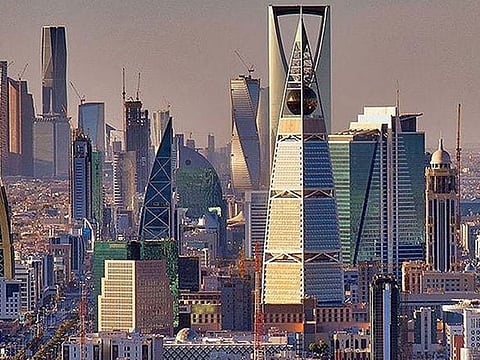Saudi non-oil job growth at second fastest rate in 10 years: February PMI
Saudi businesses also rush to add new capacities as optimism surges

Dubai: Saudi business optimism continues to ride high, at levels last seen in late 2023 as robust consumer demand led companies to raise capacity and prepare for growth opportunities. This has also led them to take in more employees, helping them to better handle higher output needs, according to the latest monthly PMI data from Riyad Bank.
Cost of doing business was also running higher, but were compensated by higher asking prices.
“Saudi Arabia’s non-oil economy remains on a solid growth path, with ongoing expansion in employment, efficient supply chains, and strong domestic and export demand pointing to sustained economic momentum,” Naif Al-Ghaith, Chief Economist at Riyad Bank.
“The underlying indicators suggest that the private sector remains well-positioned for continued expansion, supported by a positive outlook for business activity and market conditions.”
How did Saudi businesses fare on jobs?
There was a ‘particularly strong rise’ in employment across February. Survey data show the rate of job creation to be the ‘second-highest in over a decade, outpaced only by October 2023’.
“Jobs growth was strongest in manufacturing and services, sectors which also observed the highest levels of confidence,” according to the Riyad Bank report.
Based on feedback from Saudi business owners, there is ample liquidity in the market, with banks willing to help fuel expansion requirements. (But CEOs and lenders will also be taking a closer look at OPEC+’s decision to raise oil production and what this would mean for prices.)
February PMI
The Purchasing Managers Index for February came up with a score of 58.4, down slightly from the 60.5 a month earlier. (This was also the highest PMI tally for Saudi Arabia in a decade. A reading over 50 indicates the private sector in expansion mode, based on factors such as spending, production output, employee intake, etc.)
“Export demand continued to rise driven by strong demand from international markets, competitive pricing, and high product quality,” said Al-Ghaith.
“Although export growth softened slightly from recent months, it remained above average, reinforcing the strength of the non-oil sector. Supplier performance remained strong, with delivery times improving for the second month in a row, particularly in the manufacturing sector.”
Raise capacity, add space
Saudi non-oil businesses ‘continued to fill up warehouses, albeit with rates of purchasing growth and stock accumulation tempering since the start of the year’, according to the PMI report.
“Whilst robust staffing levels, efficient supply chains and healthy stockpiles enabled many firms to lower backlogs, this was often countered by demand pressures and administrative delays. Subsequently, the overall level of incomplete business fell only fractionally.”
Sign up for the Daily Briefing
Get the latest news and updates straight to your inbox



